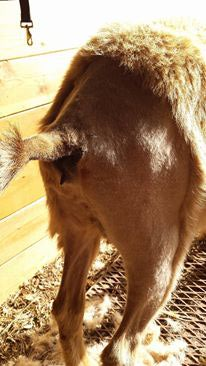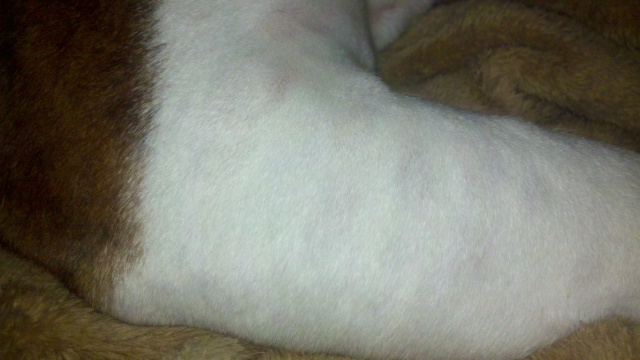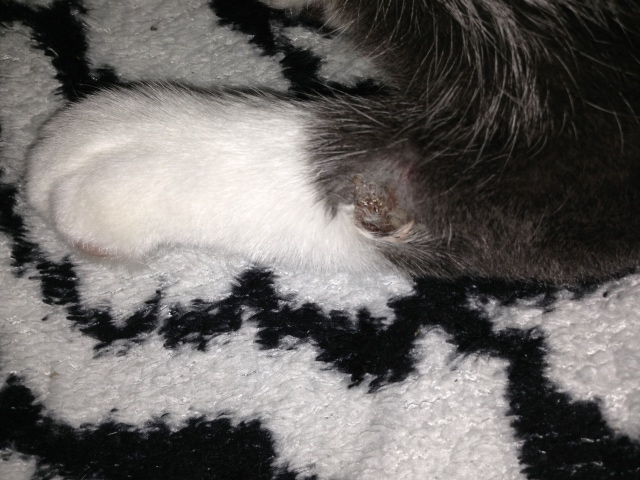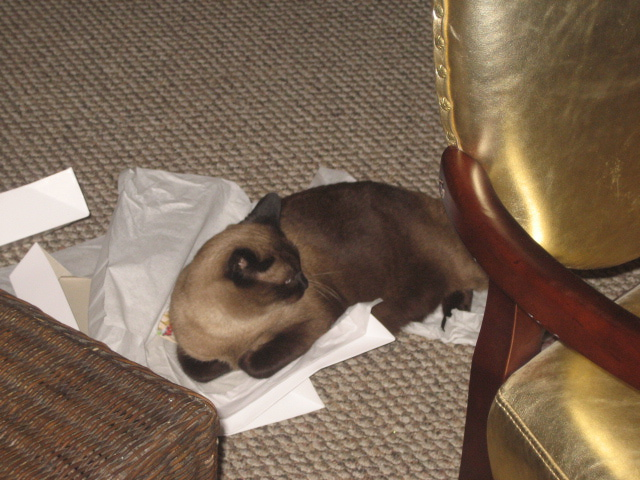QuestionWe have a 5-year-old female siamese cat, and we brought home a 12-week old male siamese kitten three weeks ago. The cat is very aggressive, and badly scratched the kitten when we put them together after a week. We now keep them separated. They move around the house, but never in the same room at the same time. Our cat still behaves very aggressively towards the kitten. Any advice you could share about how to ease their introduction would be gratefully received! Thanks.
AnswerHi Janet!Congrats on the new kitten!
As for the older,aggressive cat,here are some ways to calm her down.
The next time she growls,spits or bites,give her a firm "No!" You want the pet to stop what she's doing immediately and show a submissive lowering of the body.You want it to look like, "Whoa!I don't think I want to do that again.It's important,however,not to scare her or cause serious alarm.The trick is to be firm but not terrifying.She'll soon get the hint.
Cats and dogs,like children,will occasionally act up when you're too busy or embarrased to scold them-like when the boss is over for dinner.Take charge anyway.For scolding to be effective,it has to be delivered within a few seconds of the misbehavior.
One of the best wats to discipline an aggressive pet is to separate her from what he loves best-you.Put her in another room by himself for about five minutes.Pets don't like being alone.
Pets hate loud noises,so the next time she gets aggressive,take her down a peg or two by rattling a shake can.Take an empty pop can,put some coins in it and tape the top shut.When your pet starts misbehaving,tell him "No!" while at the same time giving the can a quick shake.The unpleasant noise will help remind him that he's etting out of line.
It's natural to strike out at a biting dog or hissing cat,but in most cases hitting does more harm than good.In fact,some animals become so afraid of being hit that they automatically bite whenever they feel threatened.Your hand should be your pet's friend.
FOR CATS ONLY
The next time your cat gets too rough,lightly flick her nose with your finger.Then ignore him for several minutes.She'll soon learn that gentle play has more rewards than being too aggressive.
Whe your rambunctious cat is making life miserable by leaping at you,claws out when your not looking,try discouraging her with a blast from an air canister like those used fro cleaning camera lenses.Cats hate and hiss and eventually will learn to mind their Ps and Qs.
Another way to discourage an "attack" cat is to keep a loaded water pistol handy,then squirt him when he gets too tough.
If you can figure out what's behind your cat's attacks-if she always leaps when your rustling the newspaper,for example- you can forestall teh ambush by tossing her a favorite toy before she gets started.
Cats have loads of energy,and they'll be less aggressive if you help them burn off steam in more socially acceptable ways.Having vigorous play sessions with exciting toys like tabletennis balls will help keep aggression in check.
There are many reasons why dogs and cats are aggressive.Fear of strangers or new situations will caise some pets to show their teeth or claws.A pet that's been abused is more likely to turn his temper-and teeth-on others.In addition,some pets are encouraged by their owners to play rough-and then look surprised when they get a scolding instead of praise.Don't ever ignore aggressive behavior.Chances are it won't get better-and it may get worse.Sooner or later,someone-a person or another pet-is going to get hurt.
As for your scratched kitten,here is what you can try to help the scratches:
The danger from most wounds isn't necessarily the bleeding but the infection that may set in later.To prevent this,thoroughly washing the wound is critical.If the wound is recent,flush it for at least five minutes with lukewarm running water.For older wounds,it's a good idea to wash the area with an antibacterial soap such as Hibiclens.Or you can apply an over-the-counter antiseptic like Betadine Solution.Both of these products are available at drugstores.
Once the wound is clean,applying an over-the-counter antibiotic oinment like Neosporin will help prevent infection by killing bacteria that may be present.
To keep the wound clean and protected,it's a good idea to wrap it with gauze.Just make sure the wrapping isn't too tight,which could cut off circulation. About once a day,remove the bandage and clean the wound with lukewarm water.Then reapply he antibiotic ointment and wrap it again.
While paw injuries are usually not serious,they can bleed a lot.Slipping a clean white sock over the paw will help keep the wound and your floors clean until the bleeding stops.
To prevent freshly clipped hairs from falling into the wouund,Vets recommend coating it with a thin layer of
water-soluble K-Y Jelly.The hairs will adhere to the jelly,which then can be easily washed away.
WHEN TO SEE THE VET
Most cuts and scrapes can be safely treated at home,but when th wound is deep and there's a lott of blood,you need an expert's care.Deep wounds,which involve tendons and muscle and not just the upper layers of skin,often cause servere blood loss and increase the risk of infection.Your pet could need a transfusion as well as stitches abd anesthesia.And bleeding doesn't always occur where you can see it.Some of the worst injuries are internal.Your pet could be losing pints of blood and you might never know it-until it's too late.Symtoms of internal bleeding include blood in vomit or urine,pale pink or white gums and listlessness.Don't take chances.If you think an injury is serious,it probably is-and you should see your vet right away.
PLEASE call and ask yuor vet if this is OK for your cat and kitten before try ing any of this!You can send this to her or his office or print it out!Please keep me posted and good luck!I hope this is helpful and give them kisses for me!Sending waging tails your way,
Nicole.D.

 Goat Pregnancy
Question
Hoots back end Hoots bag
I have a
Goat Pregnancy
Question
Hoots back end Hoots bag
I have a
 Lumps on Dogs Legs and sides
Question
Front leg
This morning when I went to work my
Lumps on Dogs Legs and sides
Question
Front leg
This morning when I went to work my
 I think my cat may have got bit by a Brown Recluse Spider
Question
Right leg bite mark Again
I am ve
I think my cat may have got bit by a Brown Recluse Spider
Question
Right leg bite mark Again
I am ve
 Cat Urinating
Question
Sealey
So my grandma just moved in two
Cat Urinating
Question
Sealey
So my grandma just moved in two
 inquiry..my bunny keeps drolling n grinding his teeth
Question
dental xray xray
Dear Jana,
Hai..
inquiry..my bunny keeps drolling n grinding his teeth
Question
dental xray xray
Dear Jana,
Hai..